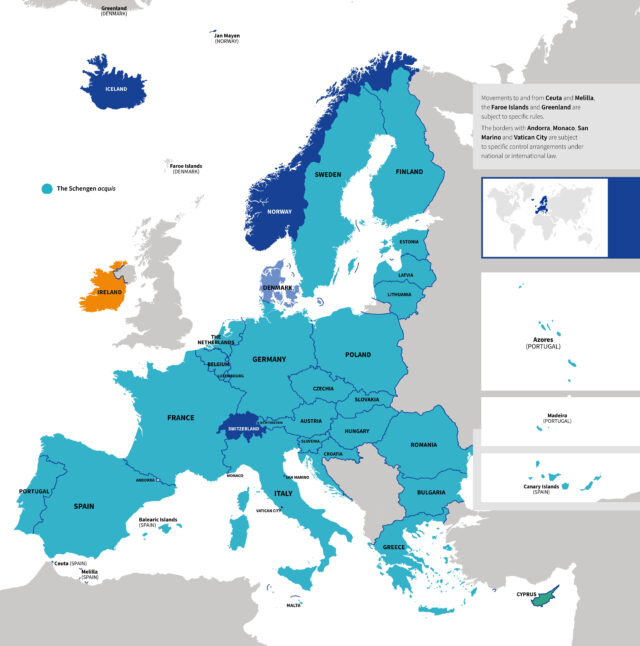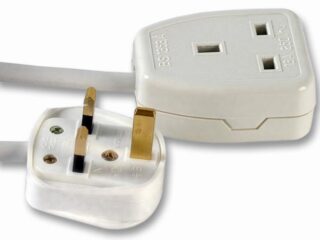Travel InformationCyprus
Cyprus uses the Euro (€). You will find many ATMs in Paphos, with widely accepted credit cards. However, it’s a good idea to carry some cash, especially for small shops or local markets.
Cyprus has a lovely Mediterranean climate with long, hot, dry summers and mild, wet winters. You can expect plenty of sunshine year-round, but especially during the summer months. While there is some rainfall, especially in the winter, it’s generally not enough to dampen your fun.
Cyprus operates on Eastern European Time (EET), which is UTC +2, and during daylight saving time, it’s UTC +3.
In Cyprus, the standard voltage is 240V, and the frequency is 50Hz. The plug type used is Type G (the same as in the UK), with three rectangular pins. Be sure to bring a power adapter if your devices use a different plug type.
Banks in Cyprus are open to the public from 08:30 to 13:30 midday, Monday to Friday. Certain banks in tourist areas open during the afternoon.
All types of medication are available in well-stocked pharmacies all over Cyprus.
Most EU travelers can use their mobile data without additional charges under EU roaming regulations. If you are traveling from outside the EU, consider buying a local SIM card for better rates. The country code is +357 and for any emergency, dial 112.
TransportationPaphos
Cyprus is served by two International Airports; Larnaca International Airport, (LCA) and Paphos International Airport, (PFO).
More than 50 International Airlines connect Cyprus to the whole world; for more details regarding flights to/from Cyprus, please visit the official website of both airports at www.hermesairports.com. Furthermore, domestic communication between both airports and all the major cities on the island is very quick and easy via an extensive highway system.
- Larnaca International Airport (LCA) is the main airport used by many airlines with multiple routes every week.
- Paphos International Airport (PFO) has fewer connections but serves as a hub for some low-cost airlines like EasyJet and Ryanair.
For a hassle-free experience, conference attendees are advised to use only these two airports. Please note that a third airport, “Ercan” airport is situated in the Turkish-occupied north part of Cyprus, and it is not a recognized port of entry into the Republic of Cyprus.
Visitors to Cyprus have the following options for their transfers from / to the airport:
Private Taxi Transfers
You can arrange for transfers by taxi through the conference coordinator, EasyConferences. These transfers are bookable online through www.easyconferences.org. These transfers can be private (max 3 persons) or shared, are inclusive of meet and assist, and the service is guaranteed.
Note: There will be a person waiting for you after Customs Formalities with a sign stating the conference name. You simply need to tell your name to the taxi driver, so that he can escort you to your taxi for you trip to your hotel.
Airport Taxis
Participants may get an airport taxi on arrival at the airport. Service is generally very good, but at times one may have to wait and prices may vary depending on the time of arrival.
Please note that Cyprus has a comprehensive public bus network, with extensive inner-city routes and also major city and airport connections. You can find more information at Cyprusbybus.com. If you require specific information, please click here and select your desired city.
Larnaca Airport to Paphos
Please note that currently, there is no direct bus service from Larnaca Airport to Paphos. However, you may follow the next steps:
- Step 1: From Larnaca Airport use the Limassol Airport Express coaches in order to reach Limassol city (last bus stop “Saint George Havouzas” – shuttle bus stop). Please visit their webpage for more information and timetable: www.limassolairportexpress.eu.
- Step 2: Afterwards, use the Intercity Buses (green buses) to get to Paphos city (first bus stop “Pervola – Karavela”). Kindly note that intercity bus service does not operate frequently. Please visit their webpage for more information and drop-off points: www.intercity-buses.com.
- Step 3: Use a public bus to reach Harbour (Main Station). Afterwards, use the Paphos public buses to reach the hotel venue. Please visit their webpage at: www.pafosbuses.com for routes and timetables.
Paphos Airport to Paphos
- Use the public bus route 612 from Paphos Airport to reach Kato Paphos Station.
- Use the public bus route 615 to reach the Coral Beach Bay
Please visit www.pafosbuses.com for more information and the timetable.
Participants may opt to hire a car during their stay, and thus use it for their airport transfers. Cars may be reserved through the conference coordinator, EasyConferences at special conference rates and are bookable online through www.easyconferences.org.
On arrival, please proceed to the booth of ‘Astra Car Rental’ company, and the staff there (present 24/7) will be able to assist you. You do not need a voucher. Simply mention your name and provide them with your driving license.
The booth of ‘Astra Car Rental’ Company is located at:
I. Larnaca Airport: after the exit of Custom Formalities, opposite you, slightly to the left.
II. Paphos Airport: opposite you as soon as you exit Custom Formalities.
Please note that the Car Hire Daily Rates start at the pick up time and finish 24 hours later. In case the car is returned exceeding the 24-hour bracket, on the last day, there will be a charge for an additional day.
Cars picked up from either Larnaca or Paphos airports are subject to an Airport Charge of 20 €. This charge has not been included in your car rental fee in the registration system and is to be paid locally
The following information pertains to the distances from Paphos’ town center. These times can vary depending on traffic and road conditions.
Paphos International Airport (PFO)
- Distance: ~15 km
- Travel Time: ~20 minutes by car
Larnaca International Airport (LCA)
- Distance: ~130 km
- Travel Time: ~1 hour 30 minutes by car
Nicosia (City)
- Distance: ~150 km
- Travel Time: ~1 hour 45 minutes by car
Limassol (City)
- Distance: ~65 km
- Travel Time: ~45 minutes by car
Exploring the CityPaphos


What to Know Before TravelingCyprus
- Visa Requirements
- Import/Export Restrictions
Reminder: You should apply for a visa in good time, in case of any delays during processing.
If you require a visa invitation or confirmation letter, please email us at info@easyconferences.eu.
Important note for travelers
As Cyprus is a candidate country bound to join the Schengen Area, Residents of non-EU countries who hold valid multiple-entry Schengen visas must first pass through a full Schengen member territory in order to utilize the visa in Cyprus. The Schengen Visa holder is allowed to travel to Cyprus directly from a Schengen member country without applying for a National Cypriot visa and stay in the Republic of Cyprus for the duration of their Schengen visa.
The above arrangements do not apply for persons holding a Turkish or Azerbaijani passport. If you are affected, please visit the Cyprus Ministry of Foreign Affairs website on how to apply for a Cyprus Visa.
For further information, please check the European Commission website regarding Schengen Visas.
Where Visas are being issued
Visas will be issued by all the Diplomatic Missions (Embassies and General Consulates) of the Republic of Cyprus, and by all the Honorary Consulates of the Republic of Cyprus abroad in their respective countries. Additionally visas can also be issued by the British High Commissions / Embassies in the following countries:
ARGENTINE REPUBLIC, BAHREIN, HONG KONG, JAPAN, JORDAN, KAZAKHSTAN, KUWAIT, OMAN, SWITZERLAND, SUDAN, UNITED ARAB EMIRATES (ABU DHABI, DUBAI) and UZBEKISTAN.
For the latest information please visit the Ministry of Foreign Affairs website.


The EU has controls on the export of dual-use goods to ensure they do not fall into the wrong hands. Dual-use goods is the equipment can be used for both civilian and military. However, it is unlikely for exhibition material to be considered as a threat.
Climate

The climate is typically Mediterranean with long, hot, dry summers and rainy winters separated by short autumn and spring seasons subject to unstable weather systems. Local meteorological phenomena are influenced by the Troodos and Pentadaktylos ranges, and also by the proximity to the sea.
The annual average precipitation is 480 mm, and ranges from 300 mm on the central plain to 1100 mm on the peak of Troodos.
Important Contacts
- Emergency Numbers
- Embassies
- Transportation Services
Police: 112 or 199
Ambulance: 112 or 199
Fire Department: 112 or 199
Coast Guard: 112 or 199
Tourist Police: 112 or 1498
EasyConferences: +357 2251900
| Georgia | Consulate General | +357 (26) 422840 |
Paphos Buses: www.pafosbuses.com
Intercity Buses: intercity-buses.com
Energy Plugin


You can purchase adaptors at:
Electronics stores specialize in electronic goods and will have a wide range of adaptors available.
Supermarkets: Many supermarkets carry a selection of travel adapters.
Airport Shops: You can purchase adaptors at the airport before or after your flight.
Kiosks: Some kiosks, especially those located in tourist areas, may sell basic travel adaptors.
Currency
You can exchange money at several places in Cyprus:
Airport Currency Exchange: These are located at Larnaca and Paphos International Airports. They offer convenient exchange services right after you arrive.
Currency Exchange Offices: These private businesses are often found in tourist areas and offer competitive exchange rates.
Hotels: Many hotels also provide currency exchange services for their guests
Frequently Asked Questions
Study in Cyprus, the 5th safest country in the world. According to an article in www.express.co.uk, the French travel cover company Insurly has identified the 10 safest countries for 2020.
The main health risk in Cyprus is sunburn. It’s important to protect your skin from the strong Mediterranean sun, especially during the summer months.
The official languages are Greek and Turkish. However, English is widely spoken, especially in tourist areas.
Here are a few ideas:
- Practical: Olive oil, halloumi cheese, Commandaria wine, or local honey.
- Decorative: Lefkaritika lace, pottery, or jewelry.
- Cultural: Traditional Cypriot costumes, icons, or books about Cypriot history and culture.

